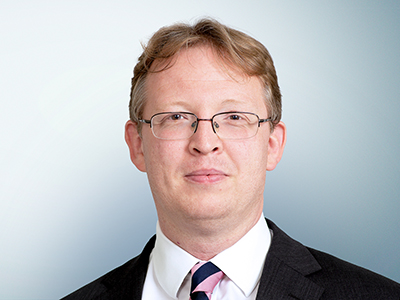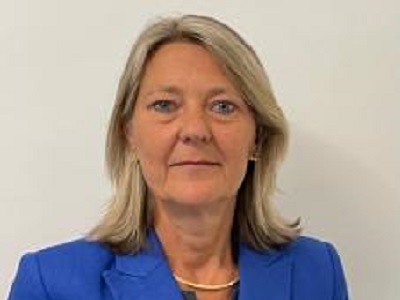International teams to assemble in Luxembourg for UPC transparency hearing
Tomorrow, the Unified Patent Court's Court of Appeal will preside over the next stage in the ongoing debate regarding court transparency and access to documents. Overall, lawyers from across ten different European firms and three legally qualified judges will be in attendance: but it remains to be seen whether the required technically qualified judges will also appear on the panel.
11 March 2024 by Amy Sandys
The UPC’s Court of Appeal in Luxembourg is getting set hear the next stage in the case on transparency brought by London-based Freshfields Bruckhaus Deringer partner, Christopher Stothers. In February, the same court issued an order decreeing that, for a ‘member of the public’ or third party to request access to court documents, they must instruct a qualified representative (case ID: UPC_CoA_404/2023; App_584498/2023).

Christopher Stothers
UPC representative necessary
The case came about after Stothers applied to see the statement of claim in Ocado vs. Autostore on the basis of Rule 262 1(b) of the UPC Rules of Procedure (RoP).
In October 2023, judge Stefan Johansson of the Nordic-Baltic division ruled that, if a person applies for access to pleadings or evidence under Rule 262.1(b), the UPC shall approve the application unless it is necessary that the court keeps the information confidential.
However, in November, Ocado lodged an appeal against the Nordic-Baltic division’s decision (case ID: UPC_CoA_407/2023 or App_584588/2023) with the UPC Court of Appeal. This stayed the original ruling of the Nordic-Baltic division. On 8 February 2024, a court order clarified that, “a member of the public who is requesting access to the Register pursuant to R.262.1(b) RoP must be represented before the UPC”. Stothers, as a member of the public in this instance, was therefore required to appoint a representative.
From one to eight
While the case has thrown a myriad issues on transparency into the fray, tomorrow’s hearing will revolve around two key points. Firstly, and most importantly, the UPC Court of Appeal must define the threshold for a reasoned request as laid out under Rule 9 UPC RoP. Secondly, the court will examine how to deal with what happens if not all defendants are served proceedings prior to the conclusion of a case – could this be a technical route to block access?
Questions abound regarding whether Stothers, as the appellant, would be able to appoint a representative and file the case anew in the two-week period from the publishing of the order to the formal hearing. As it happens, as Stothers reported to JUVE Patent, he has not sourced one but eight representatives, hailing from eight different countries.
While two are Stothers’ own Freshfields colleagues from Amsterdam and Düsseldorf, on Tuesday morning a multitude of patent lawyers from across Europe will arrive promptly for a 9.30am start.
Pan-European approach
For the appellant, alongside the Freshfields team are patent lawyers from Portugal, Belgium and France, among others. Jiri Slavik, of IP Duo in Prague, is acting on own behalf as a European patent attorney and UPC representative. Ocado’s representatives are UK-, Sweden- and Netherlands-based. Each party, and especially the appellant, is demonstrating the importance of gaining insight from patent lawyers working in a variety of jurisdictions. All parties engaged by the appellant are UPC representatives.
All the lawyers involved are also aware of the issues, with Inteo’s Kristof Neefs, Venner Shipley’s Peter Thorniley and August Debouzy’s Lionel Martin also having filed similar cases on transparency. Of Stothers’ eight-strong attorney team, most will be present at tomorrow’s court proceedings. Nicolaj Bording of Kromann Reumert and António Andrade of Abreu Advogados, however, will remain in their respective countries of Denmark and Portugal.
JUVE Patent’s research has showed that some observers claim that most of the high-profile complaints regarding transparency have come mainly from British lawyers. This includes Stothers’ high-profile Court of Appeal proceedings, as well as cases filed by patent attorney firm Mathys & Squire, and IP boutique Bristows.
Nevertheless, Stothers’ appointment of such an international team should help refute the accusation that transparency is a purely UK-led issue. Currently, the UPC has stayed at least two cases pending the outcome of the hearing, although the court’s other divisions may yet reach different conclusions based on other reasoning.
Mixed judging panel

Rian Kalden
The judging panel remains the same as the panel which handed down the original order, with the Netherlands’ Rian Kalden as presiding judge; Swedish legally qualified judge and judge-rapporteur Ingeborg Simonsson; and German judge, Patricia Rombach, who makes up the third legally qualified judge on the panel.
The panel of mixed nationalities has led some to speculate that it might lead to a disharmonious approach. For example, broadly speaking the German judicial tradition is considered less open than the approach taken by judges in Scandinavian countries such as Sweden.
On a technicality
But, at the time of writing, a bigger issue is the lack of any technically qualified judges presiding over the case. According to Article 9(1) of the UPC Rules of Procedure, each UPC Court of Appeal judging panel must include three legally qualified judges, and two technically qualified.
However, none were present in the handing down of the initial order. Some observers are now questioning what the appropriate remedy might be, should the UPC neglect to follow its own rules. Other courts, such as the EPO, follow this system. JUVE Patent can confirm that Christopher Stothers has requested the presence of technically qualified judges, in the interest of further transparency and fairness. It remains to be seen whether the court will heed this petition.
For Christopher Stothers
Abreu Advogados (Lisbon): António Andrade (partner)
August Debouzy (Paris): Lionel Martin (partner, patent attorney)
Freshfields Bruckhaus Deringer (Amsterdam): Rutger Kleemans (partner)
Freshfields Bruckhaus Deringer (Düsseldorf): Stephan Dorn (partner)
Inteo (Mechelen): Kristof Neefs (partner)
IP Duo (Prague): Jiri Slavik (patent attorney)
Kromann Reumert (Copenhagen): Nicolaj Bording (partner)
Venner Shipley (London): Peter Thorniley (partner, patent attorney)
For Ocado
De Brauw Blackstone Westbroek (Amsterdam): Anne Marie Verschuur (partner)
Powell Gilbert (London): Simon Ayrton, Tom Oliver, Joel Coles (all partners)
Sandart & Partners (Stockholm): Anna Bladh Redzic (partner)
Unified Patent Court, Court of Appeal, Luxembourg
Rian Kalden (presiding judge), Ingeborg Simonsson (legally qualified judge and judge-rapporteur), Patricia Rombach (legally qualified judge)
